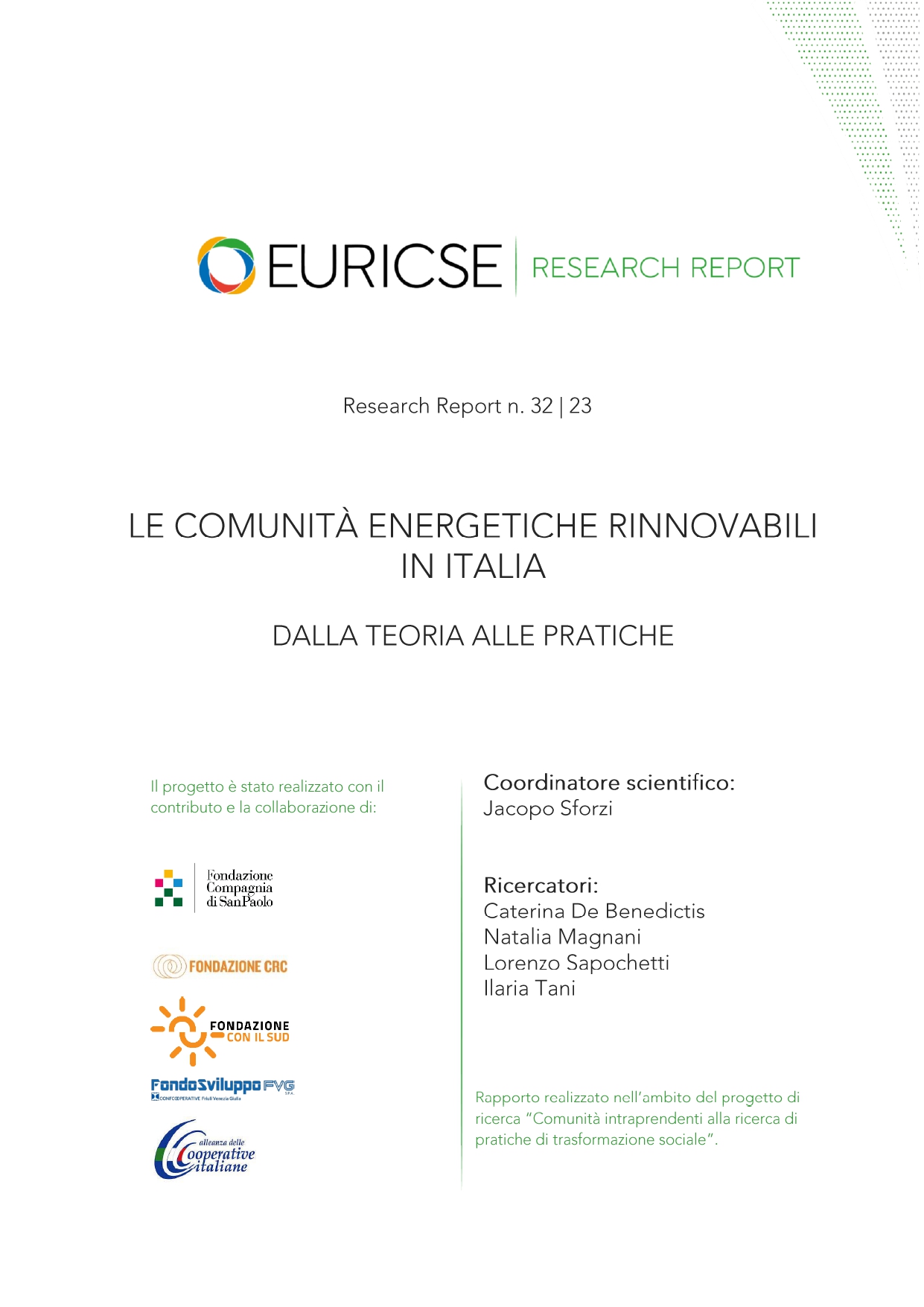Renewable energy communities in Italy. From theory to practice
This study, conducted as part of the research project “Enterprising Communities in Search of Social Transformation Practices” focuses on the role of Renewable Energy Communities (RECs) in Italy. It delves into the regulatory context and the social, economic and environmental implications associated with such communities. RECs saw the light of day in response to the 2001 European directive on the promotion of renewable energy, conceived as a means to address rising energy costs, combat energy poverty and make local communities more energy self-sufficient.
The long-term goal of RECs is to achieve energy self-sufficiency, not only through the use of renewable sources, but also through collaborative and participatory organizational models. This innovative model offers economic benefits, such as reduced supply costs, environmental benefits, such as reduced CO2 emissions, and social benefits, such as combating energy poverty and promoting social inclusion. The energy democracy promoted by RECs enables local actors to take a central role in the energy production and consumption system.
In this report, the focus is on the “practices” of the RECs and the different approaches with which they operate, using a qualitative method to highlight the activities currently undertaken by the RECs. The title itself, “practices,” is in the plural to emphasize the diversity of strategies adopted by different energy communities, considering the spatial context and actors involved.
The first chapter of the report analyzes the different definitions of ERC in the literature, highlighting the evolution of this phenomenon and its instrumental role in energy policy making. The importance of considering not only economic aspects but also real citizen participation and community benefits is emphasized.
The second chapter presents the results of the empirical research on ERCs, highlighting the governance models adopted, the instruments of resident participation and involvement, and the financing methods used to initiate ERCs.

